Spring is here, and the weather is warming up. We are all going to be using our air conditioners more, and likely looking for ways to keep energy costs down. You want to stay cool, but you don’t want to overspend on those efforts. And it can be very easy to forget and turn your thermostat down a couple of degrees only to find out the next month that your energy bill doubled.
The good news is, you can stay cool without worrying about energy costs with our pro tips. And if you think that your AC needs a tuneup, you can give us a call for AC in Newberry, FL. In the meantime, keep reading to learn how you can save money on keeping cool this summer.

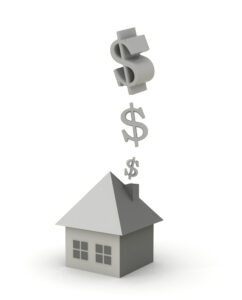
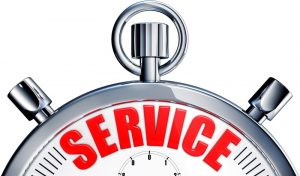 If you’re from another part of the country, you might mistake a Florida February for springtime (a very rainy spring season, that is). For the rest of us, these temperatures are just a delightful benefit of living in Lake City. This is a time when you don’t have to worry about much in terms of home comfort, aside from shutting the windows and keeping an umbrella by the door.
If you’re from another part of the country, you might mistake a Florida February for springtime (a very rainy spring season, that is). For the rest of us, these temperatures are just a delightful benefit of living in Lake City. This is a time when you don’t have to worry about much in terms of home comfort, aside from shutting the windows and keeping an umbrella by the door.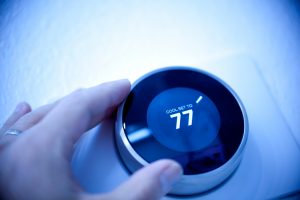 You may be excited to tell someone to check out the features on your new smartphone or the quality of your new TV. But when it comes to essentials in the home like an air conditioner, does it really matter whether you’ve got the latest and greatest technology? We think so.
You may be excited to tell someone to check out the features on your new smartphone or the quality of your new TV. But when it comes to essentials in the home like an air conditioner, does it really matter whether you’ve got the latest and greatest technology? We think so. There’s nothing better than central AC if you own a home in Florida. Those of us with it cannot imagine life without it. And yet, central air conditioning does have its flaws. One of the biggest flaws is only really evident to those of us with severe allergies, asthma, or any other immune disorder. But it can be a problem in any home.
There’s nothing better than central AC if you own a home in Florida. Those of us with it cannot imagine life without it. And yet, central air conditioning does have its flaws. One of the biggest flaws is only really evident to those of us with severe allergies, asthma, or any other immune disorder. But it can be a problem in any home.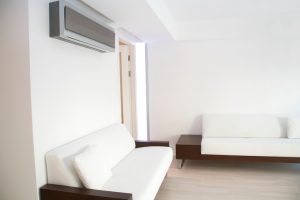 First, you should know the number one thing about heat pumps: it’s heating and cooling in one. One unit, that looks a lot like a conventional central air conditioner, can bring heat into a home and take heat out. In Florida, where we provide AC services, it doesn’t make much sense to have a separate furnace that to provide heat, but there are the occasional cold spells, making a central heater a convenient system to have—especially when it works with your AC. So what else should you know about this versatile comfort system?
First, you should know the number one thing about heat pumps: it’s heating and cooling in one. One unit, that looks a lot like a conventional central air conditioner, can bring heat into a home and take heat out. In Florida, where we provide AC services, it doesn’t make much sense to have a separate furnace that to provide heat, but there are the occasional cold spells, making a central heater a convenient system to have—especially when it works with your AC. So what else should you know about this versatile comfort system? 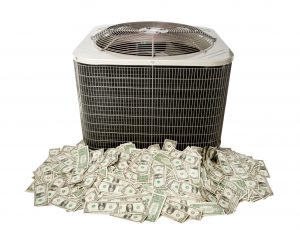 Air conditioning efficiency is something that’s a hot topic in Florida. You might think your high bills are normal, something you’re stuck with whenever the weather is warm simply because you live here. Then, a neighbor tells you they’re paying about half of what you do every month! This is an example of why many people call our technicians for help cutting down electricity bills.
Air conditioning efficiency is something that’s a hot topic in Florida. You might think your high bills are normal, something you’re stuck with whenever the weather is warm simply because you live here. Then, a neighbor tells you they’re paying about half of what you do every month! This is an example of why many people call our technicians for help cutting down electricity bills.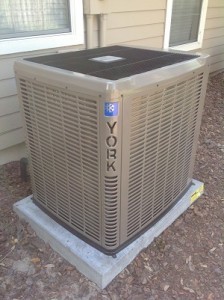 We know that it can be frustrating to find out your air conditioning system needs replacement. It feels like you haven’t had your system for that long, after all (although you may not remember the exact date). In our area, air conditioning systems fail even sooner than in other parts of the country. So when you set out to purchase a new air conditioner, you have one big question: how long will this one last?
We know that it can be frustrating to find out your air conditioning system needs replacement. It feels like you haven’t had your system for that long, after all (although you may not remember the exact date). In our area, air conditioning systems fail even sooner than in other parts of the country. So when you set out to purchase a new air conditioner, you have one big question: how long will this one last? 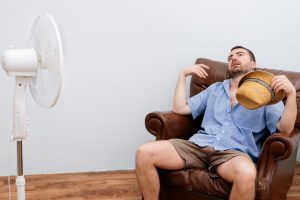 In Gainesville, we’ve all heard this time and time again… “It’s not the heat; it’s the humidity!” Humidity is responsible for a lot of our discomfort throughout much of the year here. It affects you out doors, but it also has an impact on indoor comfort. And yet, so few people actually make the effort to control humidity in the home. Usually, it takes more than just a good air conditioning system!
In Gainesville, we’ve all heard this time and time again… “It’s not the heat; it’s the humidity!” Humidity is responsible for a lot of our discomfort throughout much of the year here. It affects you out doors, but it also has an impact on indoor comfort. And yet, so few people actually make the effort to control humidity in the home. Usually, it takes more than just a good air conditioning system!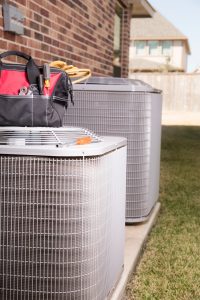 There’s no easy way to diagnose an air conditioning system without having a technician come and take a look. When you experience problems with an air conditioner, such as trouble getting the right amount of airflow through the vents, it could be anything from a dirty air filter to low refrigerant to dilapidated ductwork. So what about when an air conditioner is completely broken down? Shouldn’t the problem be obvious?
There’s no easy way to diagnose an air conditioning system without having a technician come and take a look. When you experience problems with an air conditioner, such as trouble getting the right amount of airflow through the vents, it could be anything from a dirty air filter to low refrigerant to dilapidated ductwork. So what about when an air conditioner is completely broken down? Shouldn’t the problem be obvious?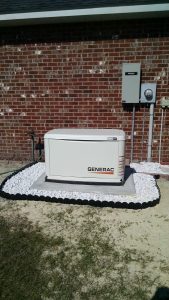 Think of the last time you dealt with a power outage. It was likely a major hassle, something that made it difficult to get through the day or night. In the worst-case scenario, you may have had to leave home in order to go somewhere with air conditioning or the ability to run certain devices, like lifesaving medical equipment.
Think of the last time you dealt with a power outage. It was likely a major hassle, something that made it difficult to get through the day or night. In the worst-case scenario, you may have had to leave home in order to go somewhere with air conditioning or the ability to run certain devices, like lifesaving medical equipment.